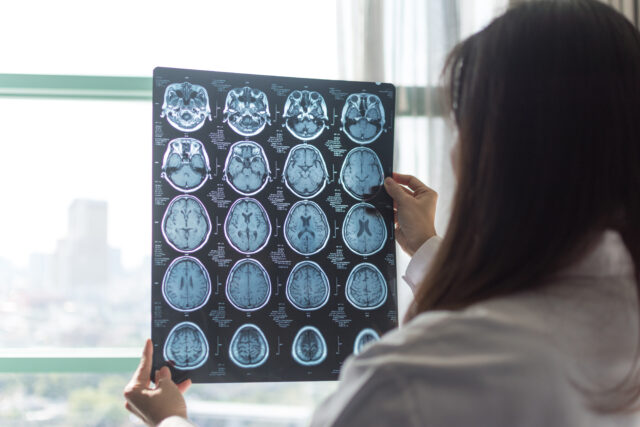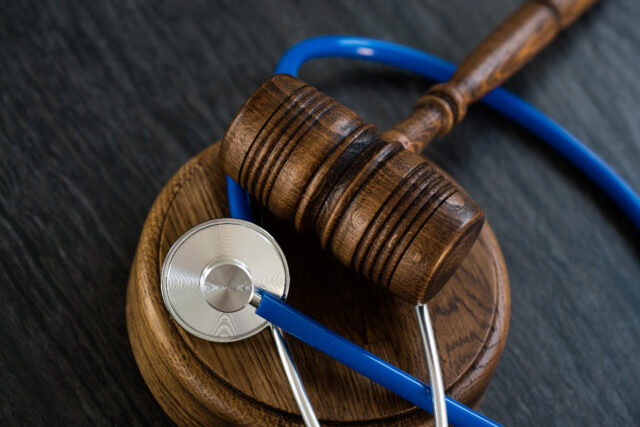Concussion injury claims refer to legal claims made by individuals who have suffered a concussion due to an accident, negligence, or intentional act. A concussion is a traumatic brain injury caused by a hit to the head, a sudden impact like in a car accident, or violent shaking.
Accident victims who sustain concussions in personal injury accidents may be entitled to compensation for their accident-related losses.
If you believe that you have a concussion injury, you need an attorney. Contact an experienced Arkansas traumatic brain injury lawyer to discuss ways to get a monetary recovery and protect your legal rights after an accident.
How Common Are Concussion Injuries?
Concussions are common nationwide. A concussion is a common injury in car accidents and is especially common for employees in high-risk occupations like construction workers.
The awareness of concussions has grown in recent years. As a result, there is more emphasis on prevention, better diagnosis, and safer handling of head injuries across various settings, from sports to the workplace.
Here is an explanation of how common concussions are in different contexts:
General Population
In the United States, the Centers for Disease Control and Prevention estimates that 3.8 million concussions occur annually due to sports and recreational activities.
Motor Vehicle Accidents
Car accidents are a significant cause of concussions, especially in collisions where the head is struck or jolted. In the United States, many people who are in car accidents report having had a concussion because of the accident.
Workplace Injuries
The Occupational Safety and Health Administration notes that head injuries, including concussions, are a significant cause of workplace-related injuries. Concussions are common in certain work environments.
Places involving heavy machinery, construction, or manufacturing increase the odds of employees being struck with objects or machinery accidents.
Falls
Falls can easily lead to concussions, particularly in young people and older adults. Children under the age of four and adults older than 65 are particularly vulnerable to concussions after a fall.
Older adults often suffer more serious consequences and face longer recovery times than other groups.
Despite the cause of the accident, if another person’s negligence caused your concussion injury, you might be entitled to recover financial compensation for your injuries.
Contact an experienced lawyer today if you or a loved one has suffered an injury and is suffering from a concussion. You can recover for your concussion injury claim starting today.
What Constitutes a Concussion Injury Claim?
A concussion injury claim includes the legal claim asserted by the victim that is used to compensate the victim for their accident-related losses. The claim usually involves proving that another party’s negligence, intentional conduct, or recklessness caused the concussion.
Common Causes of Concussion Injuries
A concussion can happen anytime a victim suffers a severe blow to the head, a violent shake, or some other type of significant trauma. Common causes of concussion injuries that may lead to personal injury claims include:
Assaults
An intentional blow to the head can cause a concussion. A bar fight, road rage issue, or other types of assault can result in a concussion. An assault might have civil and criminal consequences. Contact a head injury lawyer to discuss how the law affects your case.
Workplace Accidents
Construction or industrial workers are often exposed to environments where head injuries can occur, such as falling debris or equipment accidents.
Slip-And-Fall Accidents
Falling and hitting your head on a hard surface can result in a concussion. A slip-and-fall accident can happen in public or on someone else’s private property.
Sports Injuries
Concussions are common in sports like football, hockey, and soccer, where players are at risk of head impacts.
Car Accidents
Car accidents might be the most common way that accident victims sustain concussions. A sudden jolt or impact in a vehicle crash can cause the brain to move violently inside the skull, leading to a concussion.
Symptoms of Concussion Injuries

Concussions are serious head injuries. A concussion can have a profound effect on the victim.
Accident victims might experience many symptoms, but some of the most common types of injuries include:
- Headaches
- Loss of consciousness
- Sleep disturbances
- Memory loss or confusion
- Nausea and vomiting
- Dizziness or balance problems
- Sensitivity to light and noise
- Difficulty concentrating
- Mood changes, irritability, or anxiety
If you experience any of these symptoms, you might have a concussion injury claim. Discuss your symptoms and the effects of the injury with an experienced head injury attorney to protect your legal right to financial recovery after an accident.
Common Damages In Concussion Injury Claims
When making a concussion injury claim, the injured party may seek compensation for damages, including:
Loss of Quality of Life
You might recover compensation for lost quality of life after a concussion injury. If the concussion leads to permanent cognitive impairment or other limitations, the injured party may claim compensation for a reduced ability to enjoy life or participate in everyday activities.
Current and Future Medical Costs
As an accident victim, you might be entitled to recover for current and future medical expenses as a part of a concussion injury claim.
The cost of emergency care, hospital stays, diagnostic tests, and follow-up treatment such as physical therapy or counseling.
If the concussion causes long-term symptoms or requires future treatment, the injured party may seek compensation for ongoing medical expenses.
Current and Future Lost Income
Concussion victims who choose to sue for damages might be entitled to recover for their current and future lost income if the concussion caused them to miss time at work.
Compensation for any income lost due to time taken off work for medical treatment or recovery. In severe cases, the injured party may also seek compensation for loss of earning capacity if the concussion leads to permanent disability.
Pain and Suffering
Non-economic damages for physical pain, emotional distress, and mental anguish caused by the concussion, including ongoing headaches, memory problems, or psychological effects such as anxiety or depression.
Punitive Damages
In cases where the defendant’s actions were grossly negligent or intentional, the court may award punitive damages to punish the defendant and deter similar behavior in the future.
Punitive damages do not compensate the victim, so not every case involves them. Speak to a head injury attorney to discuss the availability of punitive damages.
What Do I Need To Prove My Concussion Injury Claim?
Concussion injury claims are negligence actions. Working with an attorney is the best way to present your case in the most persuasive way possible. It typically involves demonstrating:
Negligence
The defendant owed a duty of care to the plaintiff and breached that duty, which directly caused the concussion. For example, a negligent driver may fail to follow traffic rules and cause an accident that results in a concussion.
Recklessness or Intentional Harm
In some cases, concussions may result from reckless or intentional actions, such as a sports player making an illegal hit or an attacker punching someone in the head during an assault.
Product Liability
If defective equipment causes a concussion, you can hold the manufacturer responsible for causing the victim’s injury.
How Can a Medical Expert Help My Legal Claim?
Given the complexity of concussion injuries and their potential long-term effects, medical experts often play a critical role in these cases. An attorney can help connect with one of these experts and bolster your legal claim. A medical expert can help with the following issues.
Establish a Causal Link
A medical expert can establish a causal link between the concussion and the accident, which you need to win a lawsuit. A medical expert can establish that the defendant’s actions or negligence caused the concussion.
Provide Opinions on Long-term Effects of The Concussion
Some concussions can lead to long-lasting cognitive or emotional problems, and experts can testify about the potential for chronic issues such as post-concussion syndrome or an increased risk of developing more severe brain injuries.
Diagnose The Concussion
You will need a formal diagnosis for your legal claim. Your medical expert can diagnose the concussion and provide evidence that the injury is consistent with the incident.
Unique Challenges In Concussion Injury Claims
Plaintiffs may face several challenges when pursuing concussion injury claims. Here are some challenges that are unique to concussion injury claims.
Insurance Companies
Dealing with insurance companies can be challenging in any accident case, but particularly obvious in concussion injury claims. Insurance companies may downplay the severity of the concussion or argue that the plaintiff’s symptoms are not directly related to the incident.
Having a head injury attorney negotiate on your behalf can increase your odds of a successful negotiation process.
Subjective Symptoms
Since concussion can affect cognition, memory, and emotions, some defendants may argue that the symptoms are exaggerated or not as severe as claimed. Expert medical testimony often must support the severity of the injury.
Delays in Diagnosis
Sometimes, concussions are not easily diagnosed or are not diagnosed until after the initial impact. Delayed diagnosis can create issues in proving the connection between the injury and the incident that caused it.
Invisible Injury
Concussions are often referred to as invisible injuries because others may not immediately notice their symptoms. This can make it difficult to prove the extent of the injury, especially absent any outward signs like bruising or swelling.
Post-Concussion Syndrome
Post-concussion syndrome is a risk after an accident where the victim hits their head. Symptoms of post-concussion syndrome can include fatigue, headache, dizziness, and trouble concentrating for weeks or months after the initial impact. Struggling with post-concussion syndrome after an accident can complicate the concussion injury claim.
How Can An Attorney Help Me With My Concussion Injury Claim?

Having an attorney help you through a legal matter is always a good idea. If you suffered a concussion due to someone else’s actions, consult a personal injury attorney who has experience handling brain injury claims.
Here is how an attorney can help:
Negotiate With Insurance Companies
Insurance companies will pull out all the stops to keep from paying you a full and fair settlement. An attorney can negotiate with the insurance company on your behalf to get you the best possible outcome, which includes a fair settlement or pursuing a lawsuit if necessary.
Present Expert Testimony
Getting expert testimony in a personal injury case can be difficult. An attorney can help bridge the gap between you and a qualified medical expert. Expert testimony and medical records can prove the extent of the concussion and its impact on your daily life.
Investigate The Cause of The Concussion
Knowing how the accident happened is vital to you having a successful claim. An attorney can help investigate the cause of the accident and gather evidence to support your case.
Contact a Concussion Injury Claim Attorney Today
If you have a legal claim for a concussion injury, you need an attorney to help navigate the complex legal world of getting the financial recovery that you deserve after an accident.
Concussion injury claims are an important aspect of personal injury law. These claims can be complicated due to the nature of the injury and the challenges in proving its severity.
If you or someone that you know suffered a concussion due to an accident or negligence, legal advice from a skilled Arkansas personal injury lawyer can help you get the compensation that you deserve.
Contact a head injury lawyer today to learn more about your legal right to recovery and how an attorney can protect you after suffering a concussion.

